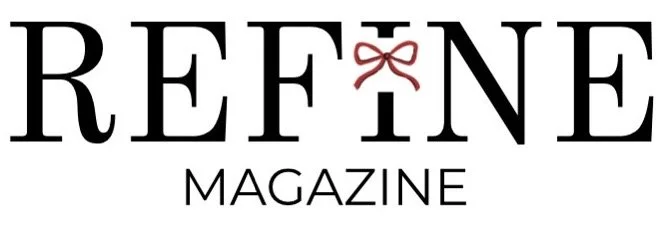The Girlbossification Tale of SoHo Scammer Anna Delvey
By: Lauren Trunfio
She was a wealthy heiress, a patron of the arts, and an aspiring entrepreneur. She attended lavish parties hosted by upper-class royalty, had extended stays at five-star hotels, and frequently went on extravagant trips.
And all of it was a lie.
Anna takes a photo of herself at the lavish Kasbah Tamadot resort in Morocco. Photo credit: Rachel DeLoache Williams
Anna Delvey, née Sorokin, is notorious for being the faux German Heiress who infiltrated the upper classes’ most elite circles and conned her way through New York society. Her escapades as the “SoHo Grifter” included swindling hotels, restaurants, banks, and friends out of around $275,000. Also, she almost managed to persuade a hedge fund to give her $25 million to open up an exclusive member’s only club, the Anna Delvey Foundation.
A quick reminder, she was only twenty-five at the time.
Now, let’s move onto how Delvey was seen as a girl boss, a term that has been criticized as of late due to its inherent sexist innuendos. For instance, Delvey is often seen in interviews discussing the misogynistic behavior that occurs in a male-dominated corporate atmosphere. However, Delvey also tended to utilize the systemic disadvantages to personally advance in her career.
Although Delvey preaches feminism and hustle-culture, she took part in the exact culture that pits women against each other. In reality, she is not a girl boss at all. She is a schemer that manipulated the system for her own personal gain, and not for the benefit of women in general.
Rarely dwelled on is Delvey’s past. We know just a few key facts about her life before she became a grifter. She was born in Russia and grew up in Eschweiler, Germany, where her father worked as a truck driver before opening up his own heating-and-cooling business, and her mother owned a small convenience store.
At 19, she left for Paris to pursue a fashion degree, where she took on her alias while shooting photographs for fashion art and culture magazine, Purple. As her fascination for art grew, and her relationship fell in shambles, Delvey flocked to NYC in 2013 where she attended Fashion Week and decided to permanently reside in the city.
Flashforward to 2017, where Delvey invited three friends to an “all-expenses-paid” trip to La Mamounia Hotel Marrakech. This is where Vanity Fair editor Rachel DeLoache Williams enters this riveting plot. After failing to provide hotel staff with a working credit card, Williams was cornered into paying the $62,000 bill, while also surrendering her Vanity Fair AmEx. At this point, Williams assumed that Delvey would reimburse her after promising to wire the transfer over as soon as issues with her bank were resolved. However, Williams never got reimbursed. This betrayal ultimately led to Delvey’s arrest at the Chateau Marmont in Los Angeles.
Netflix’s limited series, Inventing Anna, follows journalist Vivian Kent, inspired by real-life journalist Jessica Pressler, whose New York magazine article on the scam artist went viral after it was published in 2018. In her infamous article, Pressler details the rise and fall of the grifter, who somehow managed to con a slew of powerful people with ease.
Inventing Anna clearly sympathizes with Delvey, as it often portrays the con-woman as a go-getter, a result of New York’s intoxicating hustle-culture that leaves women astray. Shonda Rhimes is infamous for writing and creating female protagonists that shift the narrative.
Scandal’s Olivia Pope, for instance, challenged the cultural framing of female leadership. Inventing Anna tries to do just the same. As the Netflix series posits, Delvey was not just a regular scammer, she was cool, and almost inspiring.
Delvey didn’t just dream, she achieved. People had their doubts about her, but she did not let their judgments interfere with her goals and ambitions. It’s almost like the series portrays her as an everywoman hustling for the American dream.
In the series, Delvey constantly refers to male privilege as an all-boys club, a culture that renders men superior to women. In an all-boys club, women are excluded from the highest levels of leadership, while their voices are ignored and opinions are invalidated to a demoralizing degree. While men are rewarded for relishing in their power and dominance, women are punished for it. As the Netflix series proposes, Delvey is punished for it.
Sadly, this is an unfortunate truth. Rich, white men are typically praised for demanding power and chasing after wealth and prestige. However, women face criticism and backlash for desiring just a piece of what men get handed. Men’s mistakes and failures are overlooked, while women’s are remembered for a lifetime.
As Inventing Anna depicts, Alan Reed, based on Delvey’s real-life lawyer Andrew Lance, managed to escape completely unscathed after the con, and was also able to mend his reputation pretty easily. After agreeing to help Delvey secure a $40 million loan to open the Anna Delvey Foundation through financial contacts at City National Bank and Fortress Investment Group, Alan surprisingly ended up receiving a promotion from his law firm.
However, the argument that Delvey would have escaped collateral if she were a man is what makes this series a bit misconstrued. Delvey is not a trailblazing feminist. She did not just take from elitist men who reign in positions of power, but also took advantage of women. Yes, we are going to be discussing Rachel Williams once again.
Sure, Rachel was not a saint in this tale. Anyone who lives off the coattails of their alleged best friend may have some questionable morals. But regardless of her intentions, Rachel is simply not the villain of this story. Delvey may not have actively stolen $62,000 from Rachel, but she certainly put her in a helpless position. As Inventing Anna depicted, Rachel reluctantly handed over her AmEx card with the assumption that it would be used “for a block,” hoping that would rectify the situation.
For those that question Rachel’s inability to see through Delvey’s schemes, let’s not forget that Delvey was in the process of securing a $22-35 million loan for 281 Park Avenue, an Aby Rosen building that would house the Anna Delvey Foundation. Would you question her ability to pay if you were Rachel? Also, a fun fact, Rachel never even stuck Vanity Fair with the bill as the series insinuated. She transferred all the debt to her personal card.
Although we would love to think of Delvey as a feminist, she ultimately did scheme her way to the top. Would I call Delvey a sociopath as some have in the tabloids? Not necessarily, but I would certainly attribute her to taking part in criminal activity that hurt many along the way.
Unfortunately, #Girlboss feminism is not truly representative of feminism at all. Instead of dismantling the patriarchy, girl boss feminism celebrates women, like Delvey, that have toppled on top of other women to get what they want. Alas, it’s safe to say that scam artists are all the rage right now. Female grifters are receiving the ‘girl boss’ treatment, which paints that as heroes instead of con artists. This means that as consumers, we need to observe their stories from a critical lens instead of being swept into the glamorization of their tales from different media outlets.

